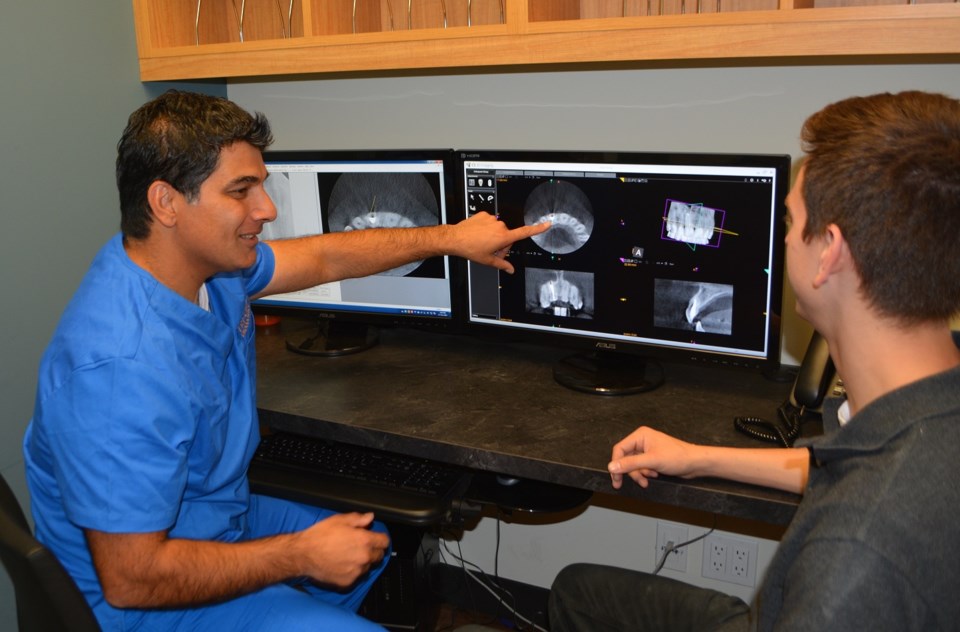Dr. Mark Parhar of Tri-City Endodontics will tell you that the best way to avoid a root canal is to take care of your teeth.
"Good dental hygiene and regular check-ups are key to avoiding any major dental work down the road," he says. "Catch a small cavity before it gets too big and watch for older fillings that may need to be replaced."
The root canal procedure involves cleaning out infected matter from the soft tissue, or pulp, inside the tooth and replacing it with an anti-bacterial filling. Preventing bacteria from entering the tooth in the first place will delay the need for a root canal.
"By ignoring cavities and not having them filled means they will grow in size. If the cavity gets too big, the infection can spread to the nerve, necessitating a root canal procedure."
One question Dr. Parhar hears a lot is: "Can I avoid a root canal by taking antibiotics?"
"Unfortunately, no," he says. "The reason is that other parts of your body, such as a finger or a foot, have a substantial flow of blood supply that moves the medication to where it's needed to help with removing the infection and facilitating the healing process. While teeth do have a blood supply, it's through small vessels and the teeth can't get an adequate supply of antibiotics to remove the infection."
In other words, antibiotics may help temporarily, but medication won't completely resolve the issue.
"The tooth is in a very isolated environment," Dr. Parhar explains. "Medication is useful for pain until you can get to see your dentist or come to Tri-City Endodontics, but it won't solve the problem over the long-term."
Another question Dr. Parhar hears a lot is: "Does a root canal hurt?"
"To be honest, sometimes," he answers. "But you're having a root canal because you're in pain and because you have an infection. In most cases, the local anesthetic we use will work perfectly well. However, if the tooth is badly infected and already painful and you're stressed and upset, the anesthetic may not work as effectively and the procedure may be uncomfortable. However, afterward the tooth will feel much better and the pain will be gone.”
Dr. Parhar and Tri-City Endodontics specialize in root canal procedures and infections in the soft tissue area of teeth. Most patients are referred by their regular dentist, but Dr. Parhar is open to direct patient consultation, particularly for people looking for a second opinion on treatment options.
For more information about Tri-City Endodontics call 604.492.3034, check out their website, send them an email or visit their offices at 2726 St. John Street, Port Moody.



